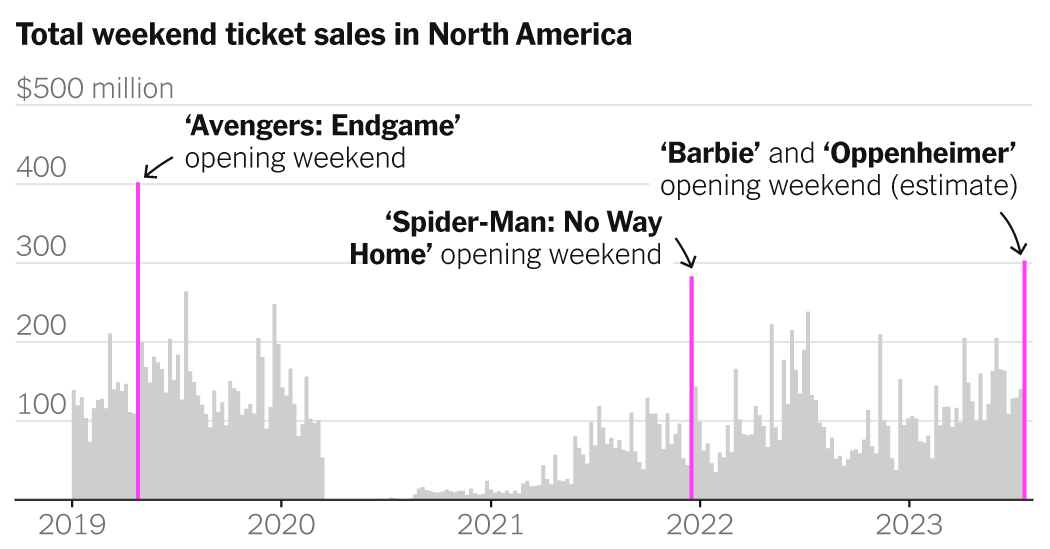
“Barbie” arrived as a full-blown cultural event, with thousands of moviegoers draping themselves in pink for screenings, doll memes flooding social media and marketers scrambling (sometimes awkwardly) to glom onto the moment. The audience was 65 percent female. “For a film this pink, you would have expected the audience to be closer to 90 percent female — we got a ton of guys,” said Jeff Goldstein, president of domestic distribution at Warner Bros. “It exploded everywhere: large markets, small markets, coast to coast.”
Some theaters seemed to be caught off guard. One high-end theater in the Washington, D.C. suburbs went all out on promotion, with pink lights to highlight “Barbie” and a wall of movie posters featuring both films. But the theater may have miscalculated Saturday attendance. By the 10 p.m. showing, it had run out of multiple food items. It also lacked soft drinks and, amazingly, ice.
Another theater in Arlington, Va., had it worse: The air conditioning went out, leading to a sweltering experience. While the theater offered refunds, many ticket buyers stayed.
The question now is whether Hollywood can keep the momentum going. Studio executives have long pointed out that moviegoing begets moviegoing — that the habit of watching movies in theaters is crucial. Coming up, however, studios are facing another crisis: A strike by unionized actors, which started on July 14, could force movie companies to push back coming films because striking stars cannot take part in publicity campaigns. “Challengers,” a sports drama involving a love triangle and starring Zendaya, has already been pushed from September to April.
There are no talks scheduled between SAG-AFTRA, as the actors’ union is known, and studios.
“Oppenheimer” helped fuel “Barbie” and vice versa, with their simultaneous release nicknamed Barbenheimer and movie fans captivated by their wild incongruity. Nolan’s film, which cost Universal Pictures at least $100 million to make, not including a megawatt marketing campaign, is a three-hour period drama about Robert Oppenheimer, the man known as “the father of the atomic bomb.” About 200,000 people purchased tickets to see “Barbie” and “Oppenheimer” as a double feature, according to the National Association of Theater Owners, a trade organization.













